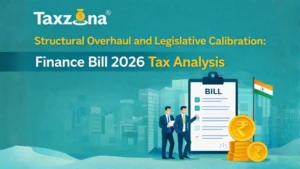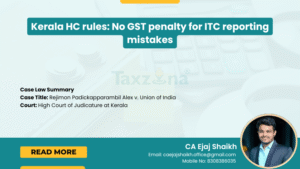What is income tax? Income tax is a direct tax imposed on the income of individuals and other entities by the government. Indian residents are required to consider their income from India as well as overseas during tax filing; whereas, foreigners are taxed only on their income originating from India. Incomes of different nature and volumes of entities other than corporate bodies are stacked under different income heads and slab rates.
INCOME:
WHAT ARE THE SOURCES OF INCOME TAXED UNDER WHAT IS INCOME TAX?
Apart from a few exemptions and deductions almost all income earned during a previous year from whatever sources e.g. salary, business, profession, rental property, sale of assets, interest, etc. are subject to income tax. Following are the 5 categories under which income needs to be classified.
- Income from salary
- Income from House Property
- Income from Business or Profession
- Income from Capital Gains
- Income from Other Sources.
- What is income tax? Read more
HOW INCOME IS CALCULATED FOR INCOME TAX PURPOSES?
To calculate taxable income one needs to take professional advice from CA or income tax consultants for taxability of various transactions and required experts to compute net income from each head of income. Under an income tax, there are different provisions and schemes for the computation of income tax return filing for a different type of assesses. Below is an overview for having a brief idea about the taxable amount computed under different heads of what is income tax?
Income from |
Taxable Amount |
|
| 1 | Salary | Net salary after deduction of few allowance and PT |
| 2 | House property | Total annual rent less Standard deduction of 30% and municipal tax paid |
| 3 | Business and Profession | Net profit from the business/profession |
| 4 | Capital gain | Gain on sale of Capital Assets |
| 5 | Other sources | All other income such as Interest income, winning from lottery, residual income, etc. |
RETURN
WHO IS REQUIRED TO FILE AN INCOME TAX RETURN?
Income tax return (ITR) is the form that is filled and submitted by taxpayers to declare their income earned and tax payable, with the income tax department.
Is it mandatory to file ITR by every citizen?
In any of the following situations (as per the Income Tax Act), it is mandatory for you to file an Income Tax Return in India.
- Your gross total income (before allowing any deductions under section 80C to 80U) exceeds Rs 2.5 lakhs in FY 2019-20.
- You are a company or a firm irrespective of whether you have income or loss during the financial year
- You want to claim a Refund of TDS.
- You want to carry forward a loss under a head of income
- if you are a Resident individual and have an asset or financial interest in an entity located outside of India.
- If you are a Resident and a signing authority in a foreign account. You are required to file an income tax return when you are in receipt of income derived from property held under a trust for charitable or religious purposes or a political party or a research association, news agency, educational or medical institution, trade union, a not for profit university or educational institution, a hospital, infrastructure debt fund, any authority, body or trust
- If you are a foreign company taking treaty benefit on a transaction in India
- Proof of return filing may also be required at the time of applying for a loan or a visa
WHAT ARE THE DUE DATEs FOR FILING INCOME TAX RETURN?
Taxpayers |
ITR Filing Date |
|
All individuals, HUFs, Association of persons, the body of individuals who needs to file ITR return and are not liable for accounts audit lies into this category |
31st July of the relevant assessment year |
|
All individuals, companies (sole proprietorship firms, partnership firms), persons of firms who need to file IT returns and are liable for accounts audit lies into this category |
31st October of the relevant assessment year as per Finance Bill 2020 (Previously it was the 30th Day of September) |
|
Taxpayers who are required to furnish reports u/s 92E |
30th November of the relevant assessment year |
|
Deadline for filing late income tax returns for all individuals & companies |
31st march of the immediate next year |
WHAT ARE THE LATE FEES & INTEREST?
The Late fees for not filing ITR FY 2019-20 are given in the table below –
E-filing date |
Income below Rs 5,00,000 |
Income above Rs 5,00,000 |
|
Up to 30th Nov 2020 |
0 |
0 |
|
Between 1st Dec to 31st Dec 2020 |
Rs 1000 |
Rs 5000 |
|
Between 1st Jan 2021 to 31st Mar 2021 |
Rs 1000 |
Rs 10000 |
PAYMENT
WHAT IS THE RATE OF INCOME TAX FOR INDIVIDUALS
Income Tax Slab FY20-21 |
Tax Rates As Per New Regime |
Tax Rates As Per Old Regime |
|
₹0 – ₹2,50,000 |
Nil |
Nil |
|
₹2,50,001 – ₹ 5,00,000 |
5% |
5% |
|
₹5,00,001 – ₹ 7,50,000 |
₹12500 + 10% of total income exceeding ₹5,00,000 |
₹12500 + 20% of total income exceeding ₹5,00,000 |
|
₹7,50,001 – ₹ 10,00,000 |
₹37500 + 15% of total income exceeding ₹7,50,000 |
₹62500 + 20% of total income exceeding ₹7,50,000 |
|
₹10,00,001 – ₹12,50,000 |
₹75000 + 20% of total income exceeding ₹10,00,000 |
₹112500 + 30% of total income exceeding ₹10,00,000 |
|
₹12,50,001 – ₹15,00,000 |
₹125000 + 25% of total income exceeding ₹12,50,000 |
₹187500 + 30% of total income exceeding ₹12,50,000 |
|
Above ₹ 15,00,000 |
₹187500 + 30% of total income exceeding ₹15,00,000 |
₹262500 + 30% of total income exceeding ₹15,00,000 |
WHEN DOES TAX NEED TO BE PAID?
If a person’s total tax liability is Rs 10,000 or more in a financial year you are required to pay advance tax. The advance tax applies to all taxpayers, salaried, Self-employed, and businesses. Senior citizens, who are 60 years or older who do not run a business, are exempt from paying advance tax.
Due Date |
Advance Tax Payable |
|
On or before 15th June |
15% of advance tax |
|
On or before 15th September |
45% of advance tax less advance tax already paid |
|
On or before 15th December |
75% of advance tax less advance tax already paid |
|
On or before 15th March |
100% of advance tax less advance tax already paid |








